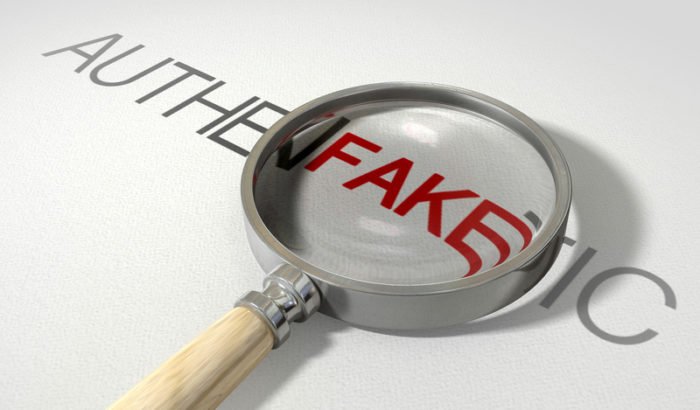Indian e-commerce business is at its peak as buyers are happy to buy online due to the discounts they get. As it happens with every business, there are some things that need to be improved in the online market and the most demanding among these is the shipping of fake products. We all know that these companies don’t sell products directly and sellers are the ones who take the benefit but it becomes the responsibility of these companies to keep an eye on what’s actually happening.

In a survey done by Times Of India group, it has been found that one in every 5 products is fake. TOI asked 30,000 people whether they had received counterfeit products in the previous six months, and interestingly 20% said yes. The most common counterfeited items came from fragrances and cosmetics.
Majority of sales are made by sellers, who typically have few checks and balances on what they ship. So it becomes easy for them to claim to be selling an expensive item, but instead, ship a counterfeit one that costs a fraction of the price.

On asking about which e-commerce platform does this most, 37% of respondents said Snapdeal, 22% Flipkart, 21% Paytm Mall and 20% said Amazon.
Also Read: Why Snapdeal Failed & Flipkart Won The E-Commerce Race?
On asking about their policies, most companies say that they have a strict policy to stop the sale of fake goods and even offer free refunds to users. Some say that they de-list the sellers if it’s proven that they shipped fake goods.

Counterfeits are a major challenge for global players like Alibaba and Amazon too. The US government had warned Alibaba Group affiliates to arrest the rise of counterfeit goods that were being shipped to the US.
Also Read: These Facts About Fake Brands & Products Will Leave You Stunned
After knowing these results, said a spokesperson of online seller group All India Online Vendors Association (AIOVA) said: “Counterfeits, substandard and unauthorised goods being sold on marketplaces hurt the business of genuine sellers.
“It is also deliberately diluting the market of a specific brand or category, like we saw in the case of a sportswear brand where the marketplace itself was involved in selling such goods,” he added.
The department of consumer affairs is trying to ensure more accountability from e-commerce companies and most probably, the government may come out with a law ensuring the safety of buyers in such situations.















